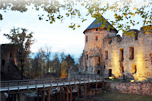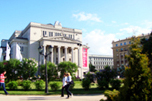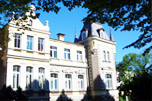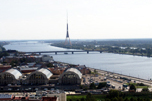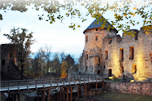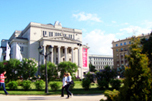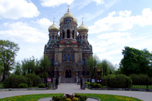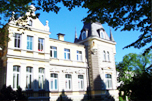The 11th Panchen Lama says he has witnessed the ample religious freedom enjoyed by the Chinese people since he was enthroned 10 years ago.
"The past decade has been the best time for the development of Tibetan Buddhism," said the leader of Tibetan Buddhism in an exclusive interview with Xinhua in Xigaze, the second largest city in Tibet, during the weekend.
"Each day I see lamas studying Buddhist scriptures attentively and pilgrims flocking in from home and abroad," he said.
He said one of the basic policies of the Chinese government is to respect and protect the citizens' religious freedom.
"I've been to many places in the past decade and witnessed the ample freedom enjoyed by individuals and religious organizations alike. Living Buddhas like myself are able to perform religious rituals under the wing of the Chinese Constitution and other laws," he said.
Tibet, whose residents are mostly Tibetan Buddhists, has 1,700 temples and monasteries and 46,000 clergy. Nearly every family has a small shrine and more than 1 million pilgrims worship in the regional capital Lhasa every year.
"The Central Committee of the Chinese Communist Party and the central government have spent heavily on the renovation of Tibet's cultural heritage sites, including the Potala Palace and Johkang Monastery that are epitome of the Tibetan culture," he said.
"I myself have received traditional Buddhism education in a pure Tibetan environment over the past decade," he said. "This is very important for me and I hope I can carry forward the Tibetan culture, which dates back several thousand years."
The Panchen Lama said he has witnessed great changes in Tibet during his current visit. "People of different ethnic groups are living together in harmony, the Tibetan society is stable, and all monasteries are packed with pilgrims. We should attribute the harmony and stability to the feasible policy of the Chinese Communist Party and the concerted efforts from all the Tibetans."
He said Tibet is sure to enjoy more wealth, harmony and stability under the leadership of the Communist Party, with the selfless aid from other Chinese localities and the concerted efforts of all Tibetans.
"I will keep in mind the glorious traditions of my predecessors, concentrate on sutra studies, live up to the expectations of the Party, the motherland and the broad masses of Tibetan Buddhists and do all that I can to serve the reunification of the motherland, solidarity of the people, development and stability of Tibet and popularity of Buddha's teachings," he said.
This year marks the 10th enthronement anniversary of the 11th Panchen Lama. He started his first-ever closed-door religious retreat in Zhaxi Lhunbo Lamasery in Xigaze early in November, hosted worship ceremonies and blessed nearly 30,000 Tibetan Buddhists through the holy head-touching ritual.
"The 11th Panchen Lama is a charming living Buddha. He's obliviously accomplished in scripture studies. We all look forward to talking face to face with him," said a pilgrim outside the Zhaxi Lhunbo Lamasery.
The 11th Panchen Lama, Gyaincain Norbu, was born on February 13,1990 in Lhari county of Nagqu prefecture in northern Tibet. He was approved by the central government in November 1995 as the reincarnation of the 10th Panchen Lama after a lot drawing ceremony among three candidates in the Jokhang Temple in Lhasa, and was enthroned as the 11th Panchen Lama on Dec. 8, 1995.
